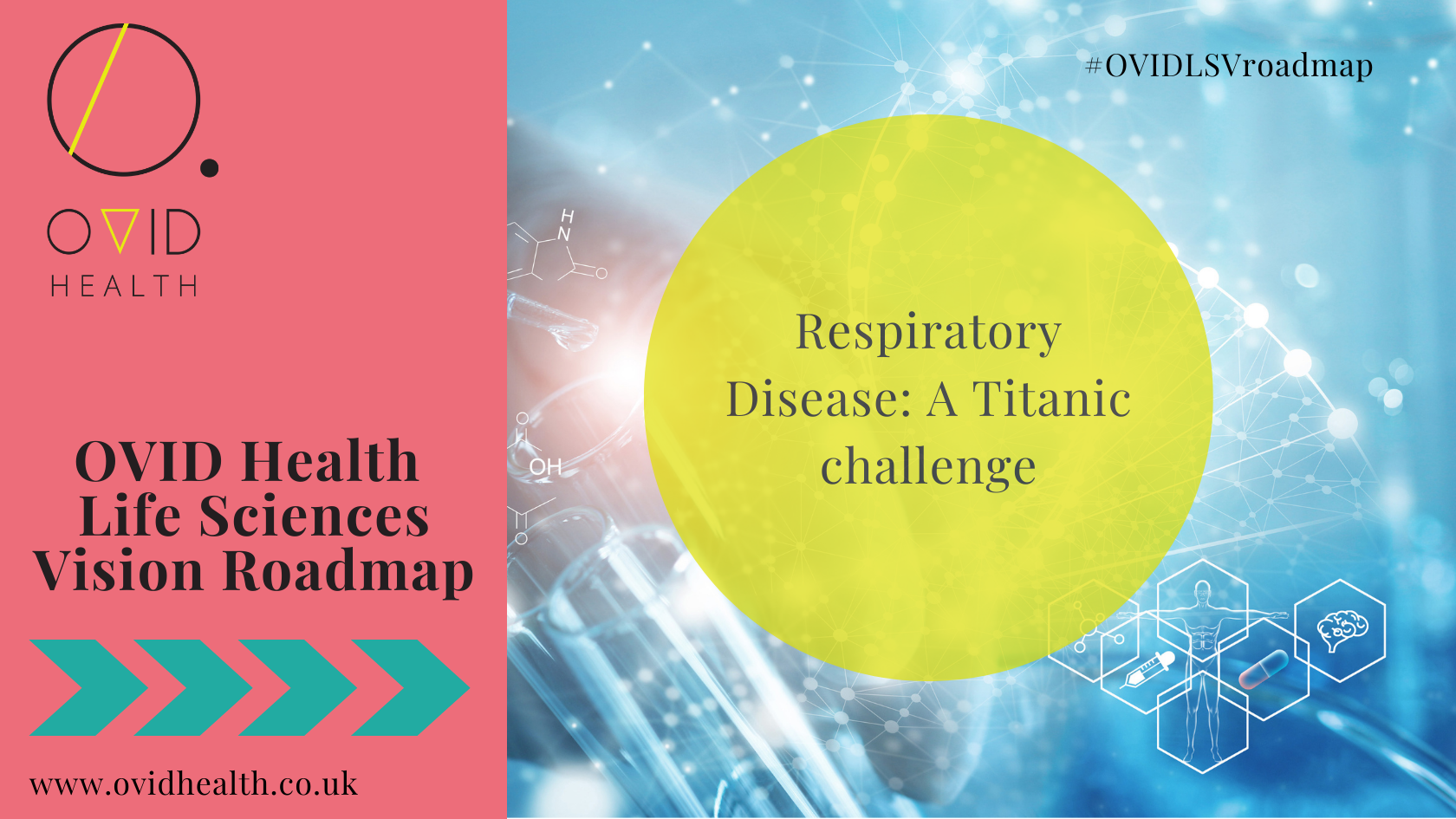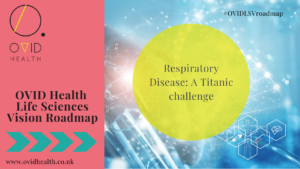
14 Jul Respiratory Disease: A Titanic challenge

July 14th was the timetabled release date for the Life Sciences Vision Roadmap – the delivery plan was due to set out funded activity for this spending review cycle to deliver on the Life Sciences Vision’s “great healthcare challenges”. Political circumstances have shelved the policy document but not the challenges it seeks to address. OVID Health Associate Director, Cameron Miller, and Senior Account Manager, Jack Fleming, share their analysis of what the Roadmap needed to contain on respiratory disease.
The iceberg
When the Life Sciences Vision was published last July, respiratory disease could hardly have been higher up the list of priorities. A virus causing severe respiratory disease in many vulnerable people had brought the world to a standstill for eighteen months. But COVID-19 is only the tip of the iceberg when it comes to respiratory disease.
In the UK, one person in every five is affected by a respiratory disease, at an estimated cost of over £11bn per year. Asthma alone effects 5.4 million people in the UK, costing the UK economy over £3bn a year. Respiratory diseases are also closely linked to another great challenge of our era, the climate crisis, with some 28,000 – 36,000 deaths per year attributable to long-term exposure to air pollution in the UK.
Yet respiratory disease attracts just 2% of the UK health research spending. This should shock anyone who cares about health or health economics.
The lifeboat
The Life Sciences Vision called on the NHS to implement improvements to patient pathways, using digital innovation in diagnostics and remote condition monitoring to address system pressures. Such ambitions may be achievable – it is no great leap from Fitbits to clinically validated remote monitoring tools. But while the pandemic has shown that industry, the Government and the NHS can adapt quickly if given no other option, outside a crisis, accelerating and mainstreaming new ways of working takes time and policy prioritisation. And the proposals in the Vision are only the beginning of a solution. Fully addressing respiratory disease morbidity and mortality would require more than new patient pathways.
Turning the ship around
OVID Health are proud to be working with Asthma + Lung UK on their vision to increase investment in respiratory research. A tripling of current research funding, from £50m to £150m per year, would bring funding in line with the proportionate impact of respiratory disease on the nation’s health, and if sustained over the long term, could contribute to reducing respiratory morbidity and mortality by 20% – potentially saving over 15,000 lives and preventing 200,000 emergency admissions every year.
The Life Sciences Vision Roadmap could have enabled Government, industry and patient groups to come together and agree on what the future of research missions in this space could look like. Such missions could encompass the whole disease pathway, from diagnosis to treatment and management, as well as disease prevention. Crucially, Government support could provide a long-term foundation for research in areas such as fundamental disease understanding or drug discovery, processes which can take years, and which end in failure more often than not.
To address a great healthcare challenge like respiratory disease, a long-term, shared commitment remains vital. Whether in the Life Sciences Vision Roadmap or elsewhere, Government must start to turn the ship around. If not, we will never avoid the iceberg.
To find out more about OVID’s take on the Life Sciences Vision healthcare challenges and how to deliver them, check out our series here.